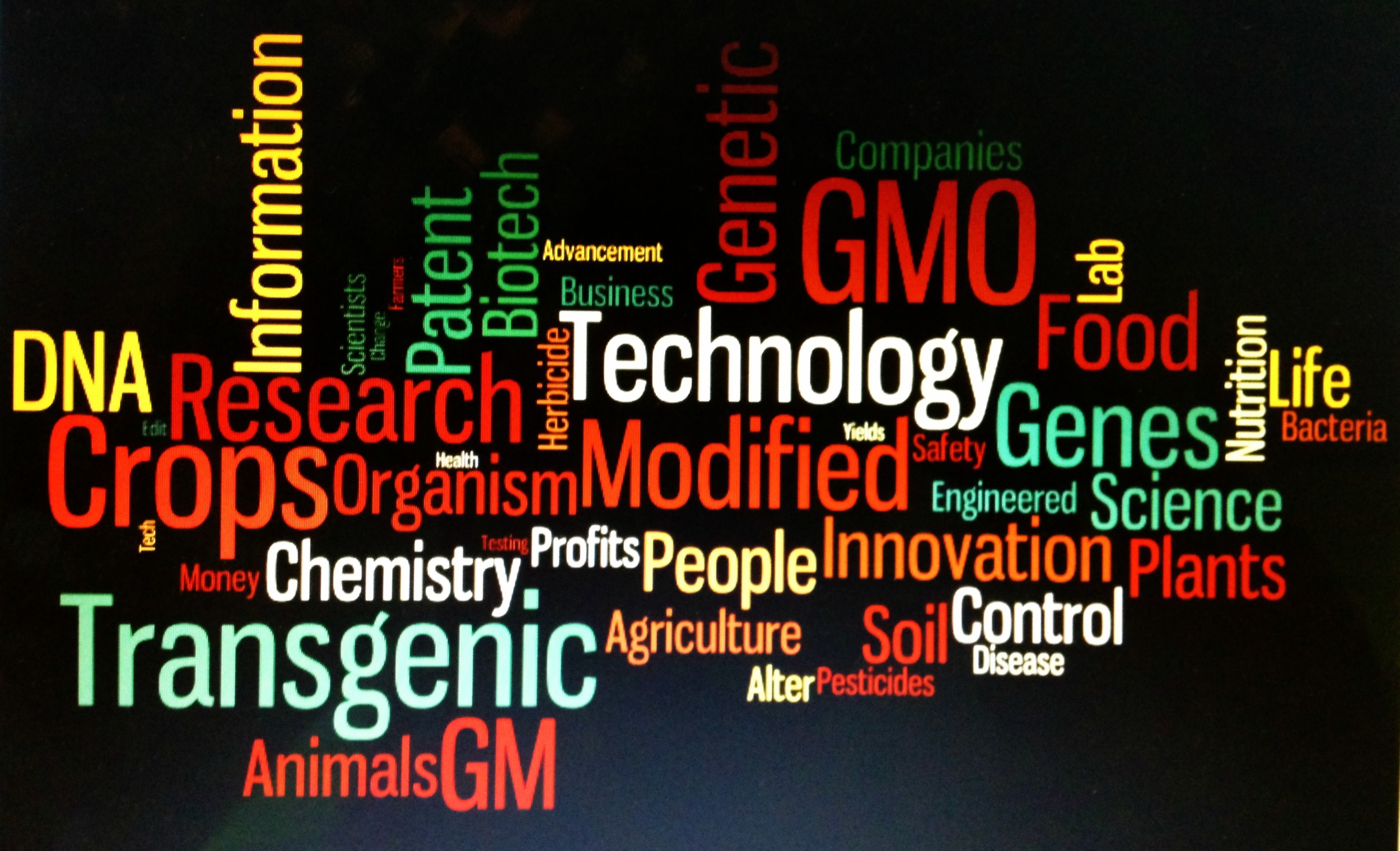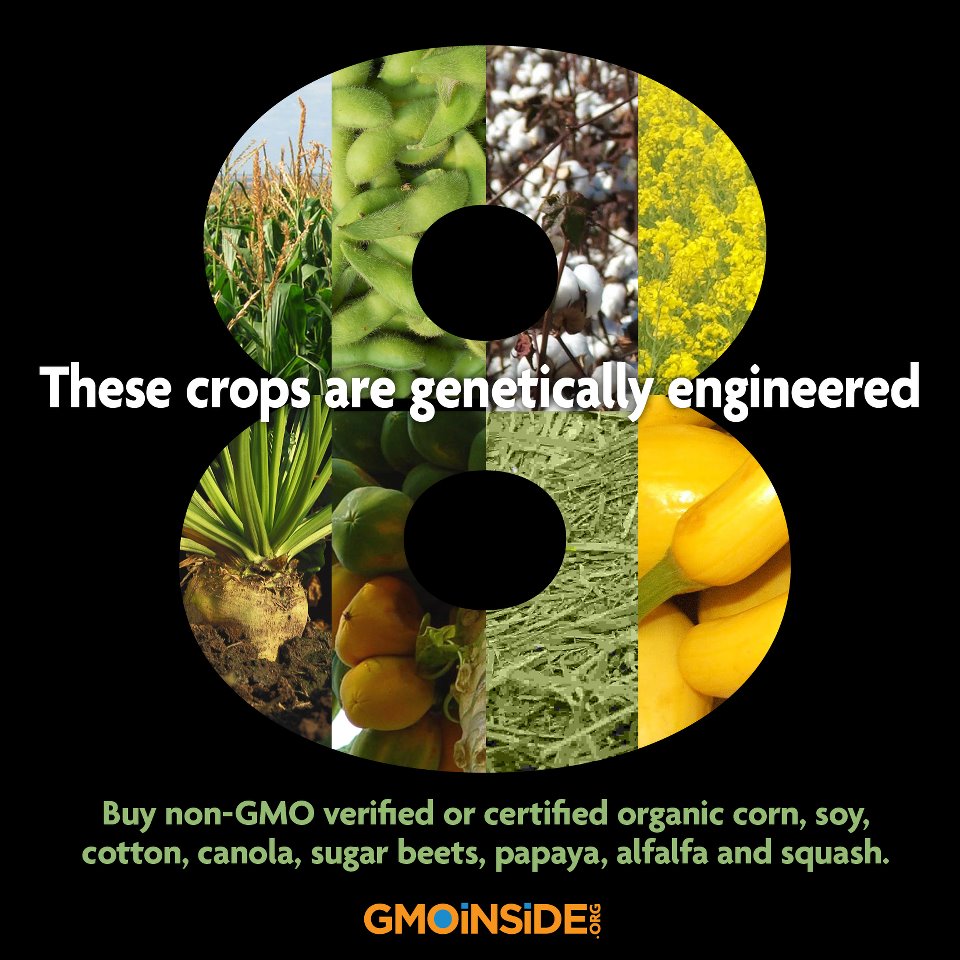Genetically Modified
/What the heck is a genetically modified food?
Well for starters, we probably should use a different term: transgenic. Technically speaking, any deliberate form of cross breeding is a form of genetic modification. This is not, however, what people are usually referring to when they speak of genetically modified organisms (GMOs). Therefore, I will use the less ambiguous term, transgenic, to refer to the specific splicing of the DNA of one organism and the subsequent insertion of a gene(s) from a different organism. Although, note that when you see the terms GM or GMO elsewhere it is most likely referring to transgenic organisms.
The process of creating a transgenic organism (whether plant or animal) is not a natural process. There are many steps involved that require the invasion of a cell usually through a bacteria or virus that has been altered with the desired gene. The plant or animal that is being modified will have the altered bacteria or virus forced into the nucleus of its cells.
Here is a great video that explains the process.
The main question is why have biotech companies created transgenic crops?
The original idea is based around improving crop yields. Whether or not yields have even been improved is up for debate, but what is for sure is that the biotech companies have created a profit generating machine by patenting seeds (live organisms which can replicate and cross-contaminate). The most prolific transgenic seeds are those that have been engineered to be resistant to a specific herbicide: Monsanto's Roundup Ready Herbicide. This means that farmers can spray massive amounts of Roundup Ready Herbicide without fear that it will destroy the crop. Of course, Monsanto is the company that has both patented the seeds and the herbicide. How convenient? The company is making money selling farmers seeds and the herbicide. So, now we've got transgenic food that is being sprayed with a massive amount of herbicide.
There is also Monsanto's Bt corn which is engineered to have an insecticide built into its DNA, which can liquify the stomach linings of insects trying to eat the crop. What does it do to humans? We don't know.
There are a number of others, but Monsanto owns 90% of all transgenic crops and those are the two big ones. Do not be fooled by Monsanto's claims that it is trying to feed the world. It is the chemical company that brought us Agent Orange and it is mainly concerned with profits. Otherwise, Monsanto would perform the necessary tests to determine that it is actually safe to feed the world transgenic foods.
For those of you who may not know much about transgenic foods, the following may come as a shock:
***In the U.S.A., transgenic foods are in as much as 80% of all conventional processed foods***
The following are considered high risk transgenic crops:
- Alfalfa (first planting 2011)
- Canola (approx. 90% of U.S. crop)
- Corn (approx. 88% of U.S. crop in 2011)
- Cotton (approx. 90% of U.S. crop in 2011)
- Papaya (most of Hawaiian crop; approximately 988 acres)
- Soy (approx. 94% of U.S. crop in 2011)
- Sugar Beets (approx. 95% of U.S. crop in 2010)
- Zucchini and Yellow Summer Squash (approx. 25,000 acres)
- Also, Animal Products due to contamination of feed and rBGH (Bovine Growth Hormone which is a transgenic hormone inserted into conventional cows)
[statistics from the Non GMO Project: http://www.nongmoproject.org/learn-more/]
Essentially, this means processed foods. Canola, corn, soy and sugar (sugar beets) make up the majority of ingredients in conventional processed foods. Also, any actual corn, soy or canola oil that is non-organic and not certified as Non-GMO is almost certainly transgenic. Alfalfa is poised to become a big factor because it is both easily spread and fed to livestock.
Transgenic crops have been around for well over a decade, which means that almost all of us have, at one time or another, consumed transgenic foods without our knowledge or consent. This is unique to the U.S.A. In the European Union, transgenic crops are banned. Even Russia and China require labeling of transgenic food.
Despite their proliferation in American diets, very little testing has been done on the safety of transgenic crop consumption. The big biotech companies have a lot of money and have managed to lobby the government to reduce regulations and treat transgenic crops as normal. Which means that they've entered our supermarkets and our stomachs without extensive testing, causing the public at large to be the biotech industry's own personal guinea pigs. I, for one, do not appreciate that these companies have placed profits over public health.
via golivegreenlife.com
Clearly, eating a single serving of transgenic food does not produce immediate, acute effects that are easily identifiable, but what about consumption over time? The answer is: we don't know. Biotech companies have attempted to prevent testing of transgenic crop consumption, but slowly tests are coming out and the results are not looking good. Connections are coming out between transgenic foods and infertility, immune problems and altered organ function, among others. See the links below:
- new-study-gmos-bt-protein-toxic-to-human-cells
- Austrian Government confirms GM crops threaten human fertility and health safety
- Rodale.com: Genes from GMO food do wind up in people, study shows
- Institute for Responsible Technology- Doctor's Health Warning: Avoid Genetically Modified Foods
- Natural News: Video about GM foods altering organ function
What does this mean for us, today?
Personally, I want to see labeling on transgenic foods. This is extremely relevant today. In an exciting new turn of events, Senator Barbara Boxer (D- CA) and Congressman Peter DeFazio (D-OH) have sponsored new federal legislation that would require labeling of all transgenic foods in the U.S. This is a right to know issue.
If you do not want to consume transgenic foods your best bet is to:
- Avoid processed foods
- Buy certified Organic and/or certified Non GMO foods
- Try heirloom varieties of foods
If this resonates with you, please get involved. Monsanto, Dupont and others spent just under $25 million in order to block Proposition 37, which would have required labeling of transgenic foods in California in 2012 (1). We need people who will protect the interests of the public, not the interests of company profits. Get the word out. Encourage people to call their representatives and tell them that they want transgenic food to be labeled. We have the right to know what is in our food.
Some resources for getting involved and/or learning more:
- www.nongmoproject.com
- justlabelit.org
- www.responsibletechnology.org/
- www.naturalnews.com
- www.mercola.com
(1) http://www.forbes.com/sites/amywestervelt/2012/08/22/monsanto-dupont-spending-millions-to-oppose-californias-gmo-labeling-law/












